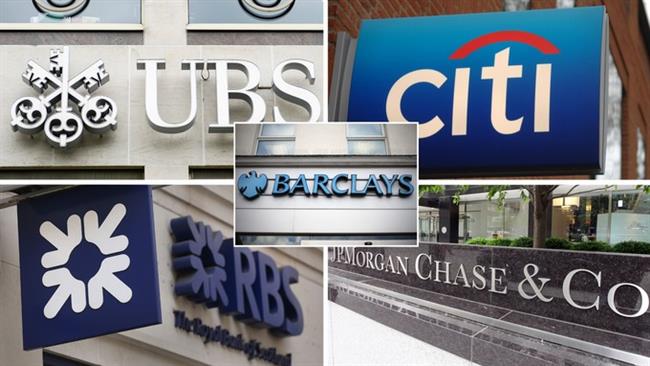

The greatest volume of currency is traded in the interbank market. This is where banks of all sizes trade currency with each other and through electronic networks. Big banks account for a large percentage of total currency volume trades. Banks facilitate forex transactions for clients and conduct speculative trades from their own trading desks. When banks act as dealers for clients, the bid-ask spread represents the bank's profit. Speculative currency trades are executed to profit from currency fluctuations.
There are hundreds of banks participating in the forex network. Whether big or small scale, banks participate in the currency markets not only to offset their own foreign exchange risks and that of their clients but also to increase the wealth of their stockholders. Each bank, although differently organized, has a dealing desk responsible for order execution, market making, and risk management. The role of the foreign exchange dealing desk can also be to make profits trading currency directly through hedging, arbitrage or a different array of strategies.
The largest currency volume is traded within the inter-bank market. This market comprises all types and sizes of banks that trade currency over electronic networks with one another. The ‘big banks’ are highly involved in such trades. Banks are known to facilitate all the forex transactions for their clients and also conduct certain speculative trades over their trading desks. Banks are also known to execute carry trade in addition to other participants such as hedge fund managers and individual investors. This process involves borrowing low yielding currencies and then selling these for the purchase of higher yielding currencies.
Large international banks that trade currency worth tens of billions of U.S. dollars on a daily basis are usually referred to as market makers. They are large financial companies and banks whose transactions make up a significant portion of the total volume of forex trading, giving them influence on currency exchange rates. The largest and best-known market makers include Deutsche Bank, Barclays Capital, UBS AG, etc. In other words, what matters is a bank’s actual ability to influence movement on the market by offering its buy and sell prices.
The global aspect of the World Bank's tasks and the range of its powers allow it to not only affect the currency market but also regulate it if necessary. Speaking about national currencies, we should not forget about the states where these currencies are used. For instance, these states may be credited by the World Bank; they may ask for financial aid or be offered low-interest rates. What does it tell us about? It tells us about the World Bank's huge influence on the world's economy. Its actions may define the fate of various countries and their currencies.
To receive new articles instantly Subscribe to updates.